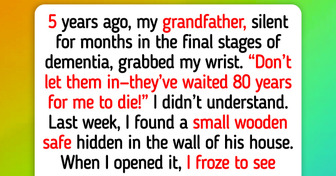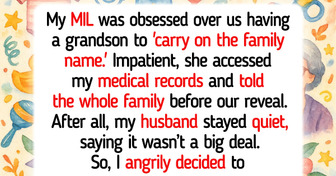My Boss Tried to Ruin My Christmas Plans—I Got the Last Laugh

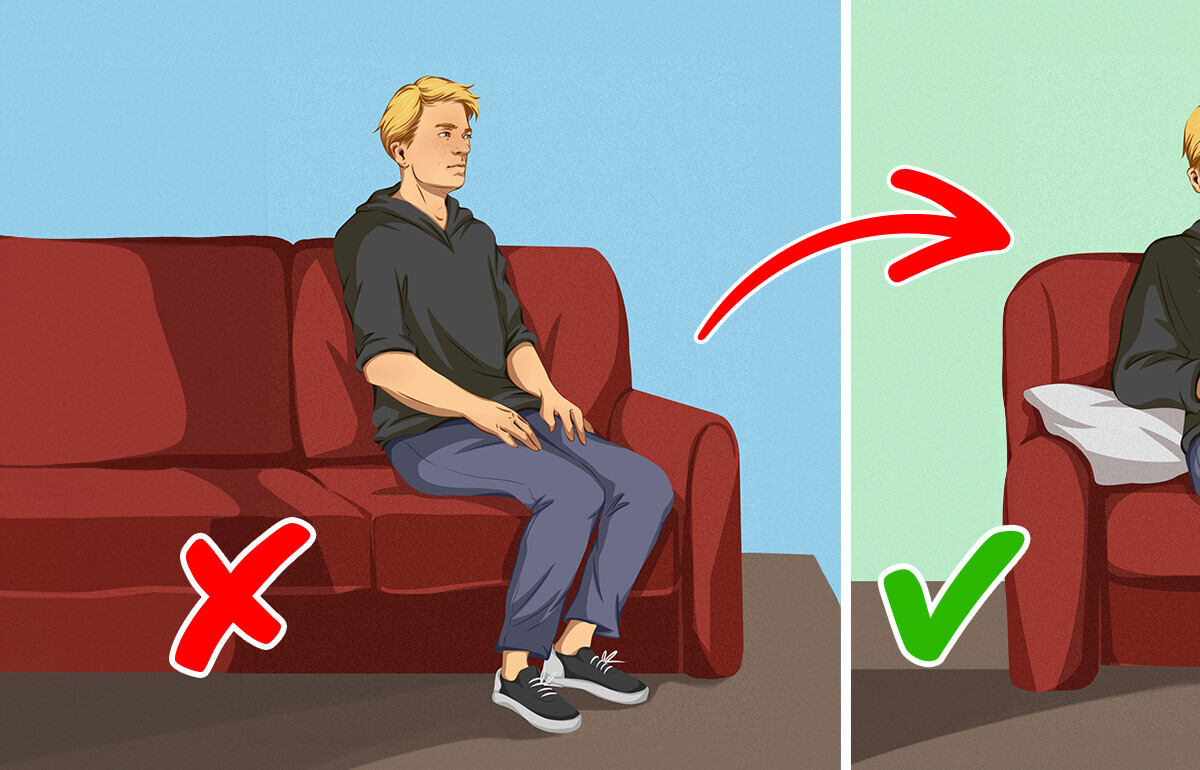
Confidence is one of the most valuable traits a man can have—but it’s not always easy to hold onto. In a world full of pressure and constant comparison, many men can feel unsure or mentally drained. Fortunately, building confidence and supporting mental health doesn’t always require big changes. Often, it’s the subtle daily habits that quietly make the biggest impact.
Physical activity does more than improve your mood—it gives your self-esteem a real boost. When you exercise, your body releases endorphins, those natural “feel-good” chemicals that leave you feeling more energized, positive, and confident all day long.
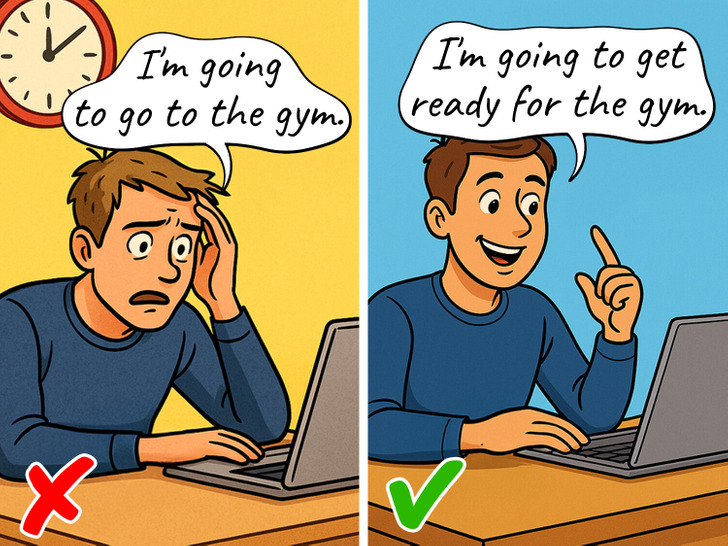
Keep your list focused on tasks that can be completed within just a few minutes. Avoid adding big or time-consuming goals like “Go to the gym.” Instead, break them down into quick actions like “Change into gym clothes” or “Pack my water bottle.” These small steps help build momentum.
Remember, confidence often comes from actions—especially the small ones. Knocking out quick tasks gives you a sense of control and progress, which fuels your belief in what you can accomplish next.
People you spend the most time with can have a significant impact on your self-confidence. Choose to spend time with people who bring out the best in you. Being around supportive, uplifting individuals can greatly boost your confidence and help you stay motivated on your personal journey.
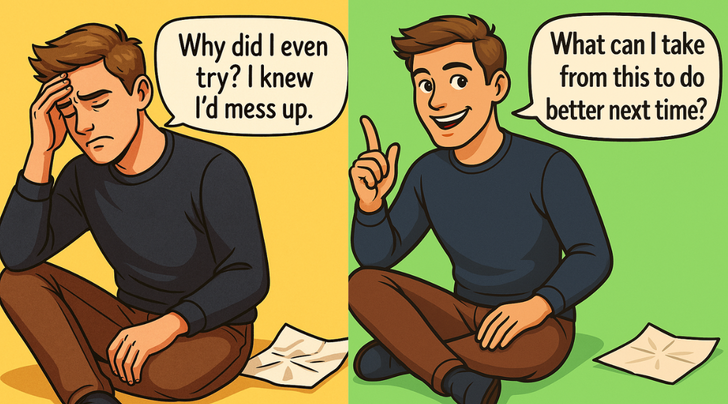
Many men overlook the impact of positive self-talk, making it difficult to adapt in daily life. The key is to start small—try simple affirmations that feel genuine. Over time, as you notice subtle shifts in your mindset and confidence, it becomes easier to believe in the practice.
Ultimately, your thoughts shape your reality. Embracing positive self-talk can boost self-belief, strengthen confidence, and lead to a more optimistic, empowered outlook on life.
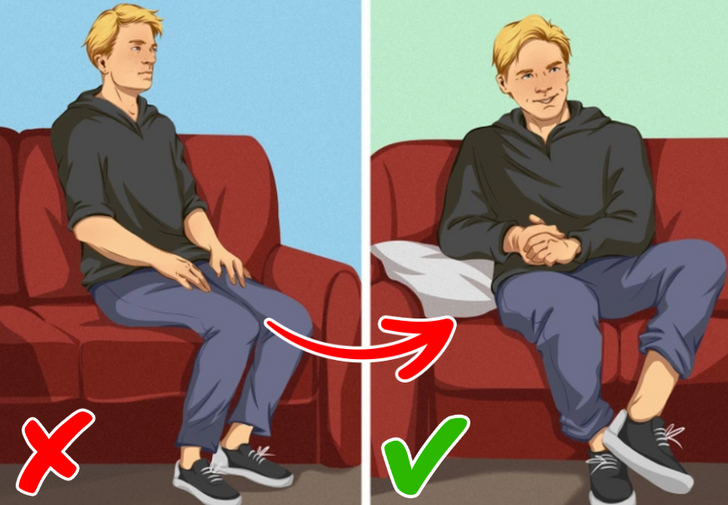
Looking confident means using body language—like gestures, posture, and clothing—to show self-assurance. While it varies by person, psychologists agree these cues powerfully express confidence and belief in ourselves. If you want to be the image of confidence, you should try to occupy the space you need and feel comfortable using it. Doing this will be seen as a sign of comfort, confidence, and security.
Confidence isn’t built overnight — it grows through consistent effort and experience. One of the most effective ways to strengthen it is by setting and achieving small goals. Break big ambitions into manageable daily tasks. Each time you complete one, you reinforce a sense of capability, progress, and self-belief.
Confidence grows when you challenge yourself and step beyond the familiar. True growth happens at the edge of your comfort zone. Try setting a goal to do something new each week—whether it’s sharing your ideas in a meeting, joining a new group, or learning a new skill. Every small step into the unknown reinforces your belief in your ability to adapt, grow, and succeed.
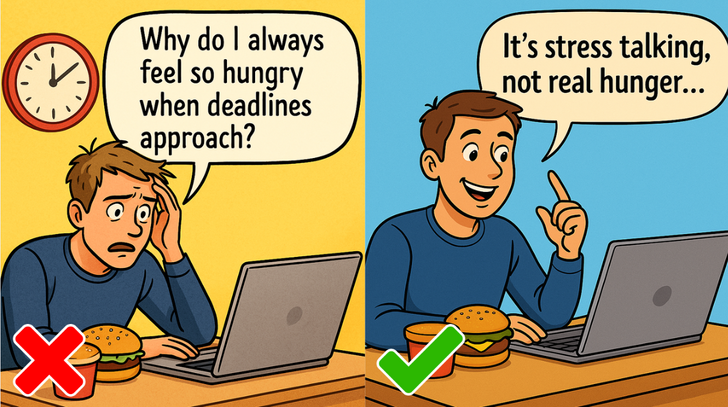
Understanding self-awareness can be a powerful tool in managing stress. By recognizing your thoughts, emotions, and behaviors as signals, you gain insight into your overall well-being. When you notice signs like exhaustion, irritability, or feeling overwhelmed, self-awareness allows you to pause, identify the source of stress, and take steps to address it before it escalates.
How you speak to yourself in the morning can shape the rest of your day. Starting with a positive affirmation like, “I’m ready for whatever today brings” or “I’m confident and capable” can set a strong, uplifting tone. These simple phrases may seem small, but they help train your mind to focus on strength, possibility, and progress from the moment you wake up.

Consciously or unconsciously, when someone feels confident, the separation between the fingers of your hands is usually greater, you tend to raise your thumbs a bit more, and bring your fingertips closer together. The human brain is wired to use hand gestures to express emotions and thoughts clearly. Hiding your hands while speaking can make you seem less open and honest.
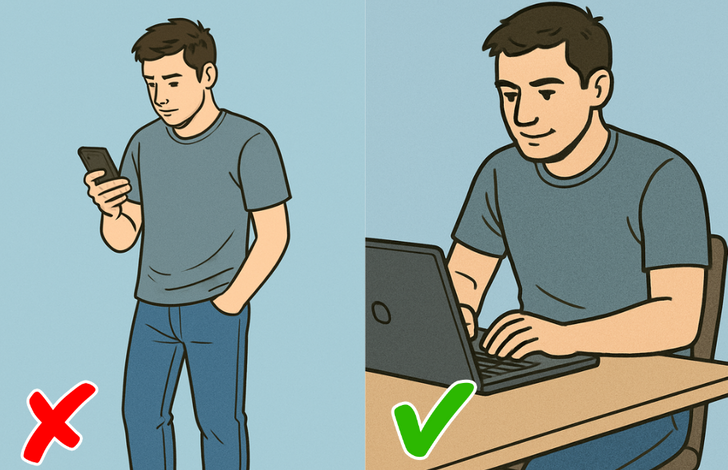
Too much social media can quietly chip away at your confidence. A simple way to cut back is by making access less convenient. For instance, avoid using it on your phone—log in only from your computer. This small barrier helps break the habit of mindless scrolling and encourages more mindful, intentional use.
Building confidence and supporting your mental health doesn’t always require big changes—often, it’s the subtle, consistent habits that make the greatest impact over time. So, what small habit will you start today to boost your confidence and well-being?



